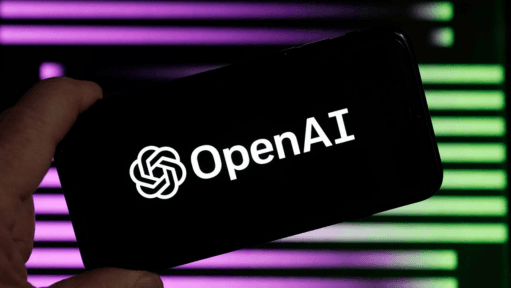
Legal Clash Over AI Training Data: OpenAI Faces Copyright Lawsuits from Authors
OpenAI has responded in California court to allegations of misusing works by authors like Michael Chabon, Ta-Nehisi Coates, and Sarah Silverman to train its models
In recent months, the AI industry has been under scrutiny, especially with advancements in artificial intelligence capabilities that utilize large language models. One of the notable players in this field, OpenAI, has found itself at the center of a legal storm, facing allegations of copyright infringement from prominent authors. These authors, including Pulitzer Prize winners and other bestselling writers, claim that OpenAI's models, like ChatGPT, have been trained on their copyrighted works without proper authorization or compensation. However, OpenAI has firmly denied these allegations, arguing that its practices comply with fair use principles and are integral to the technological innovation that drives the AI industry forward.
Background of the Allegations
The core of the controversy lies in how OpenAI trains its large language models. These models require vast amounts of text data to learn language patterns, syntax, semantics, and the ability to generate coherent and contextually relevant responses. According to the complaints filed, these data sets allegedly include books, articles, and other written works protected by copyright laws. Notable authors, including George R.R. Martin and John Grisham, have filed lawsuits, arguing that OpenAI's use of their literary works constitutes a direct infringement of their exclusive rights to reproduce and distribute their content.
OpenAI's Defense: Fair Use and Technological Innovation
In response to these allegations, OpenAI has mounted a robust defense, citing the doctrine of fair use as a legal shield. The company argues that the use of copyrighted texts in training its models constitutes a transformative use, which is a key factor in fair use analysis. OpenAI claims that the AI does not replicate or replace the original works but instead uses them to learn general language principles, which can then be applied to a wide range of tasks, from answering questions to creative writing prompts.
OpenAI’s spokesperson highlighted that the AI-generated outputs are not simple reproductions of the original texts. Rather, they are new creations that may be inspired by or reflect patterns learned from the training data. This transformative nature, OpenAI argues, places their use within the bounds of fair use, a concept embedded in U.S. copyright law to allow for new and innovative works that benefit society.
Moreover, OpenAI underscores the importance of AI development and innovation. The company believes that restrictive interpretations of copyright law that hamper the development of AI technologies could stifle creativity and technological progress. They argue that the benefits of AI, which include applications in healthcare, education, and other critical sectors, far outweigh the concerns posed by these lawsuits.
The Authors' Concerns: Protecting Creative Rights
On the other side of the argument, authors express concern about the potential erosion of their intellectual property rights. They argue that if companies can freely use their copyrighted works to train AI models without compensation or authorization, it could undermine the incentive structure that underpins the creative industry. Authors emphasize the need for a legal framework that protects their rights while balancing the interests of technological innovation.
The lawsuits filed against OpenAI not only seek monetary damages but also call for greater transparency in how AI companies use copyrighted materials. They advocate for mechanisms that would ensure authors are compensated for the use of their works in training AI systems, akin to the royalties they receive for other types of usage.
Legal Landscape and Potential Implications
The outcome of these lawsuits could have far-reaching implications for the AI industry and copyright law. If the courts rule in favor of the authors, it could set a precedent requiring AI companies to obtain licenses or permissions before using copyrighted works for training purposes. This could increase costs and regulatory requirements for developing AI technologies. Conversely, a ruling in favor of OpenAI could affirm the applicability of fair use in AI training, providing a legal framework that supports the continued growth and innovation of AI technologies.
The cases also raise broader questions about the balance between protecting intellectual property rights and promoting technological advancement. As AI continues to evolve and integrate more deeply into various sectors, the need for clear legal guidelines becomes more pressing. The decisions made in these cases could influence future legislation and policies, not only in the United States but globally, as other countries grapple with similar issues.
Conclusion
As the legal battle unfolds, both sides present compelling arguments. OpenAI's defense hinges on the transformative nature of AI and the broader societal benefits of technological progress, while authors focus on protecting their creative rights and ensuring fair compensation. The outcome of these cases will likely shape the future of AI development and the rights of content creators in the digital age.
Regardless of the verdict, it is evident that the legal, ethical, and societal implications of AI technologies require thoughtful consideration. Finding a balance that respects both the innovation brought by AI and the rights of creators is essential to fostering a future where technology and creativity can thrive together. As courts and policymakers navigate these uncharted waters, the decisions made will undoubtedly play a pivotal role in shaping the evolving landscape of intellectual property and artificial intelligence.
(The writer is a Associate specializing in Intellectual property and copywrite Law at The Law Reporters .)
For any enquiries or information, contact ask@tlr.ae or call us on +971 52 644 3004. Follow The Law Reporters on WhatsApp Channels.